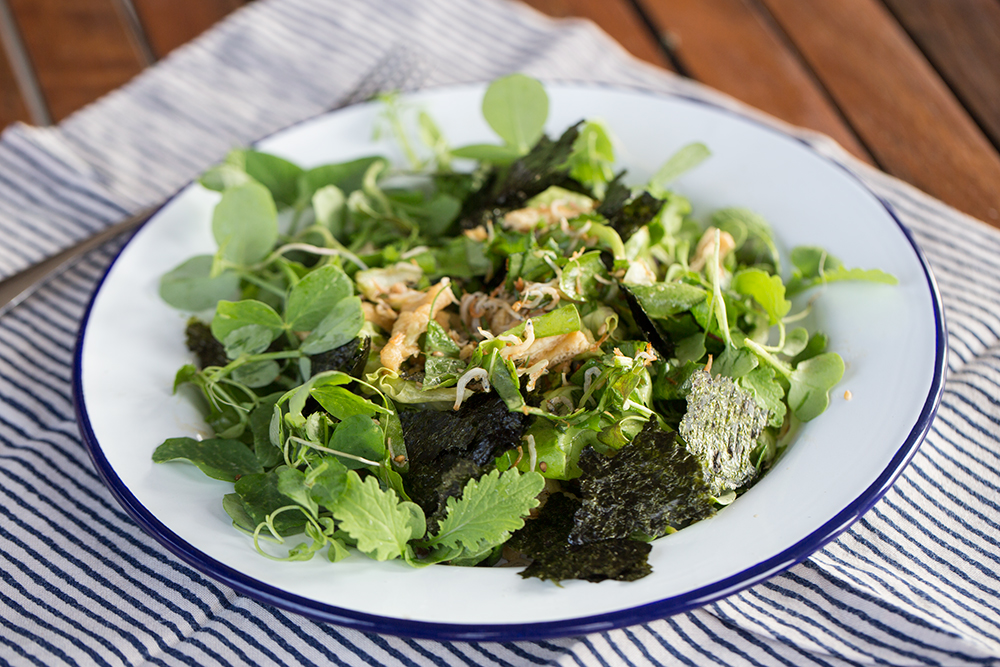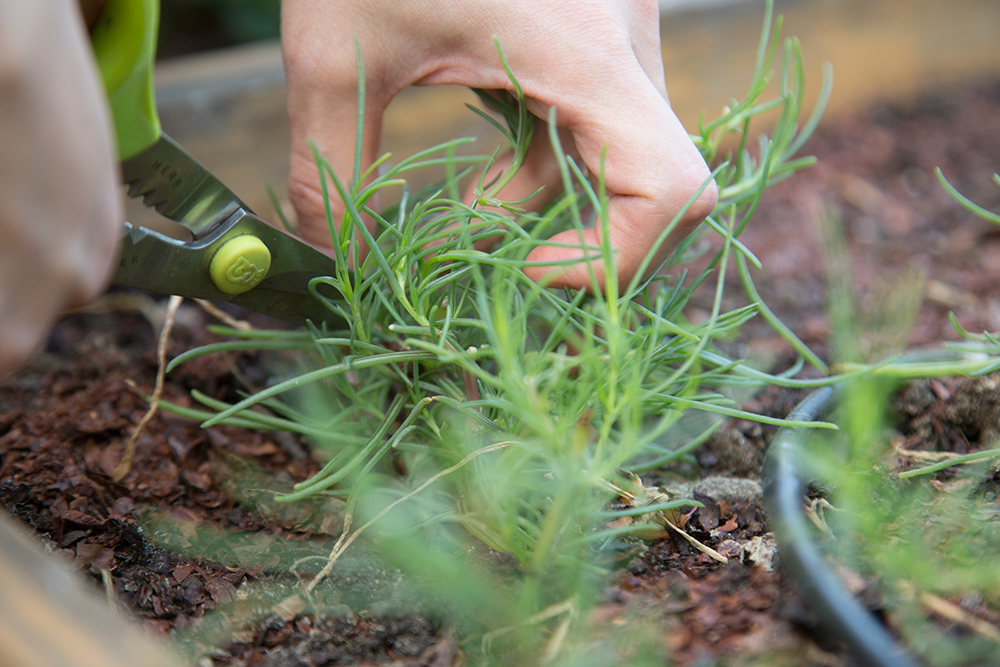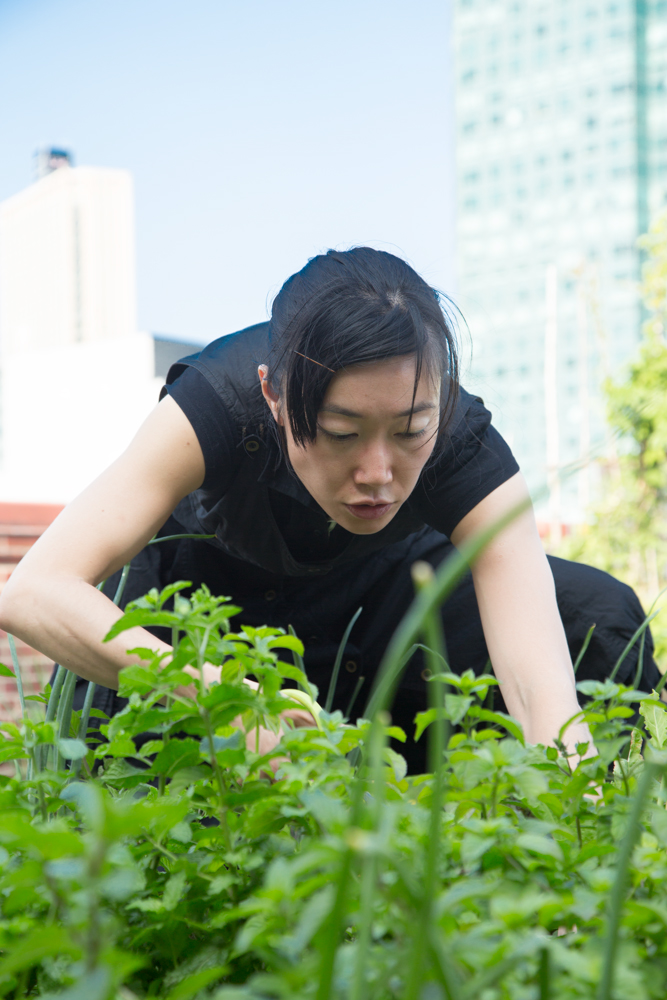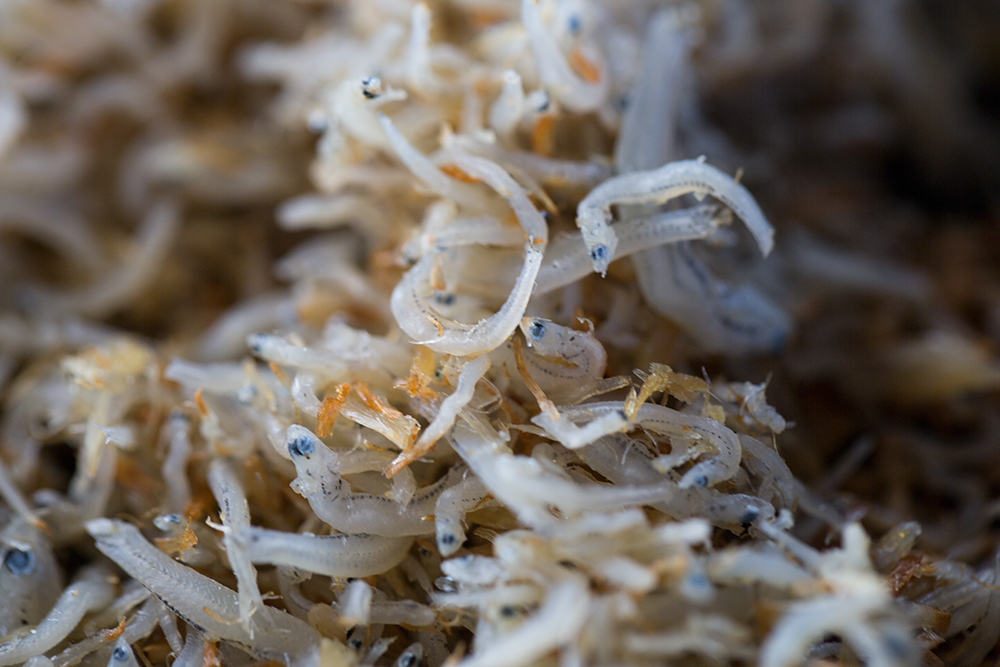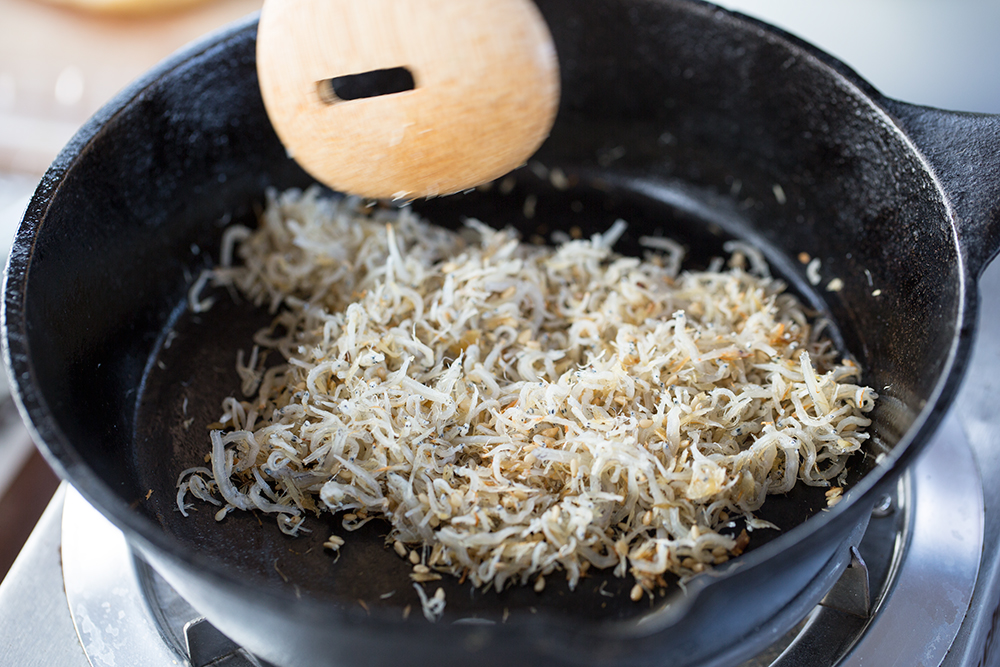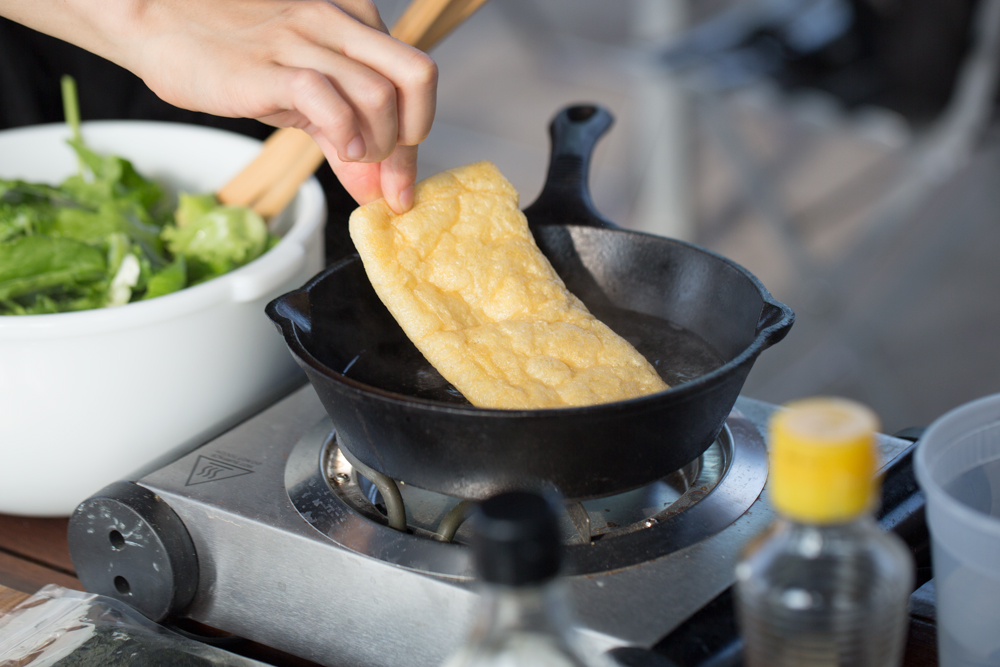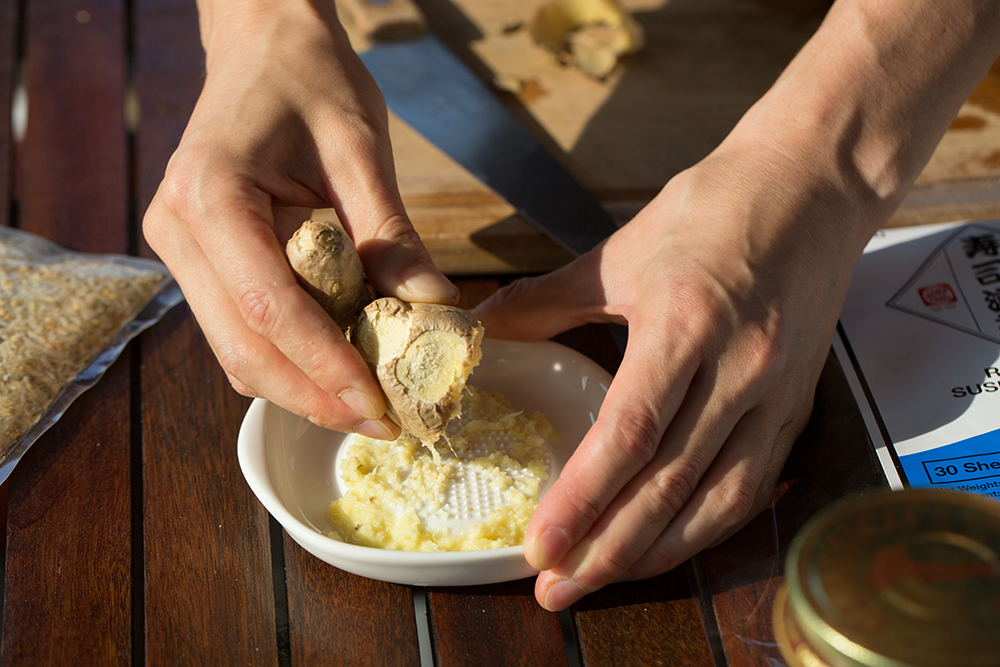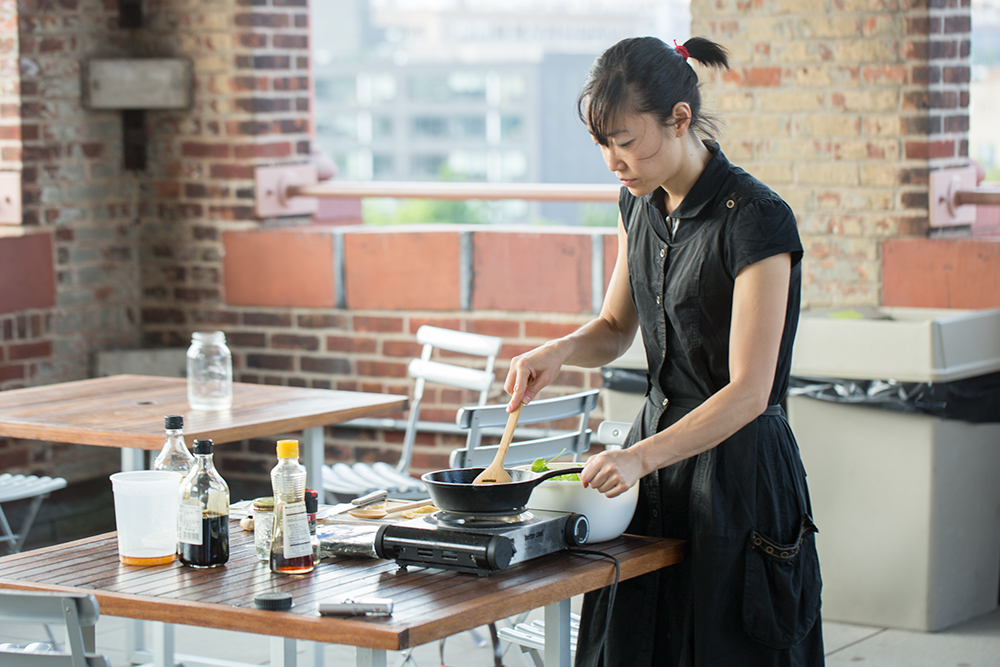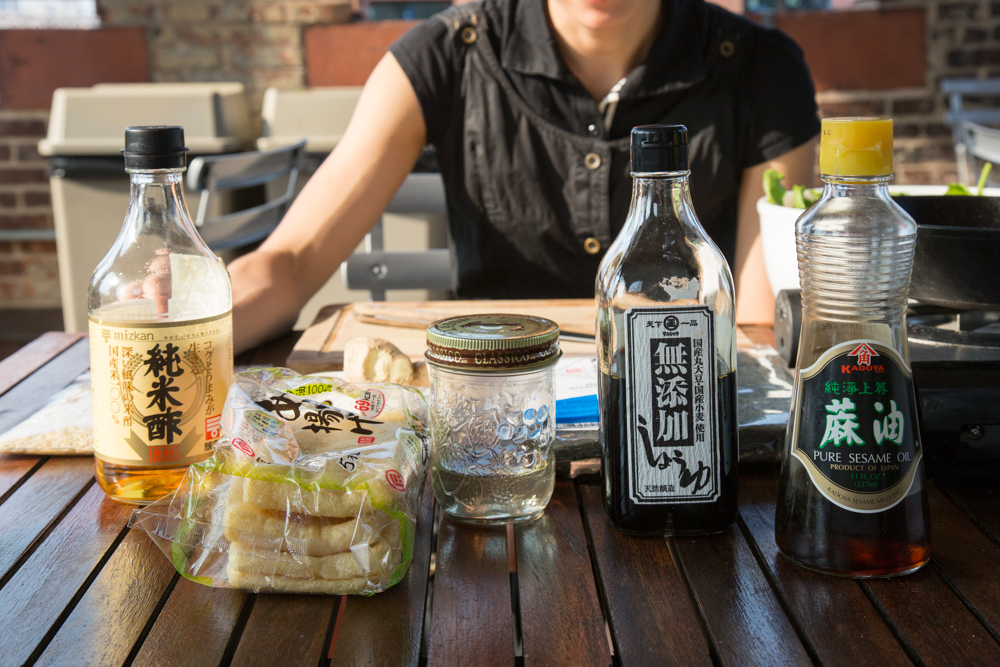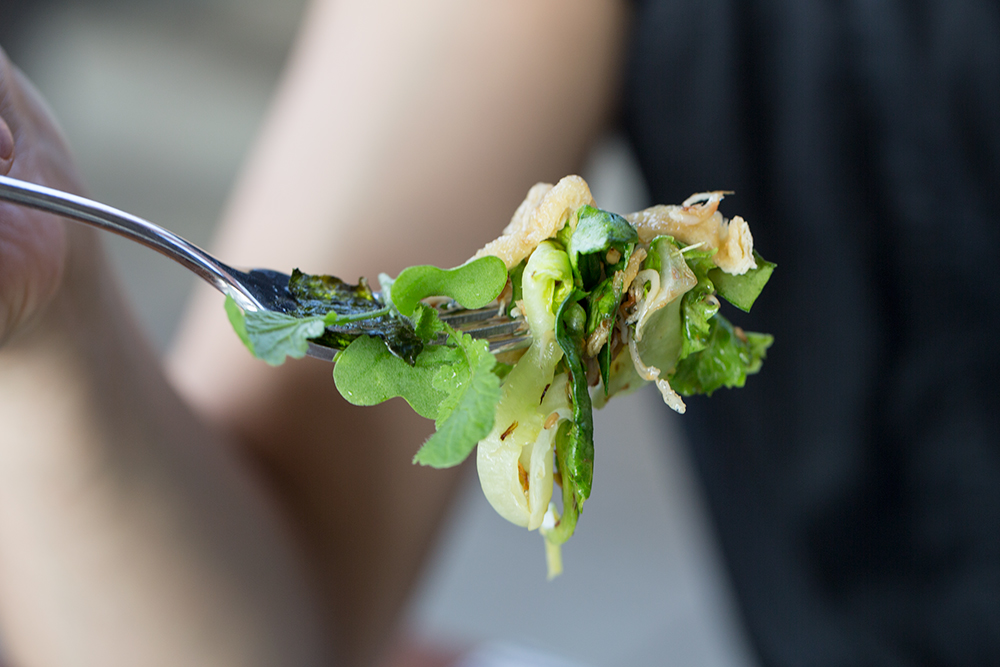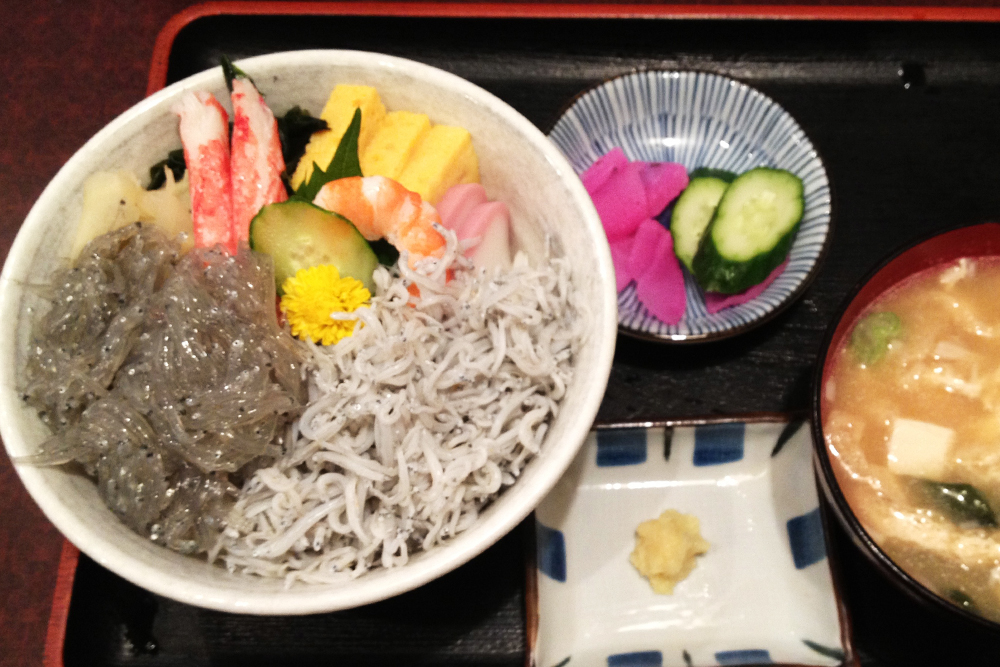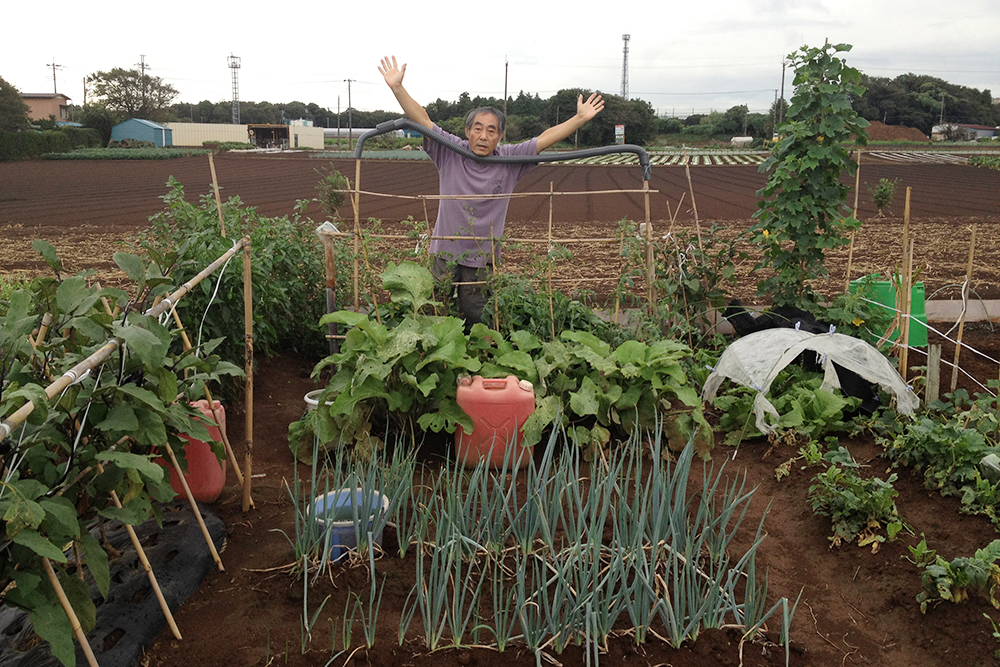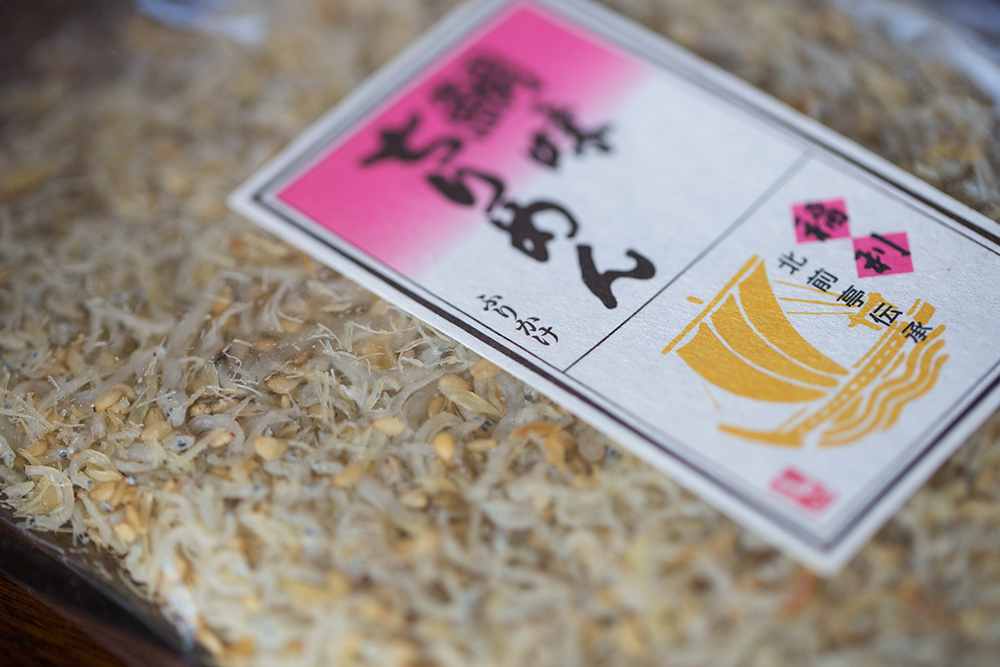INGREDIENTS
- agretti,
- jako,
- pea shoots,
- rice wine vinegar,
- sardines,
- seaweed,
- sesame oil,
- shiso,
- soy sauce,
- TOFU
NOTES
This recipe requires specialty Japanese ingredients that can be found at any Asian grocer – Jacko, deep fried tofu, rice wine vinegar, nori. The dried fish are mixed with sesame seeds and when fried, they are crunchy but not at all fishy. For our greens we used pea shoots, mizuna and agretti.
RECIPE
DIFFICULTY
EASY
SERVES
2
PREP TIME
10 MINS
Salad
-
1cupdried baby sardines
-
1piecedeep fried tofu
-
2sheetstoasted nori
-
2cupsmixed greens
Dressing
-
1tspmicro-grated ginger
-
1tbsrice wine vinegar
-
3tbstoasted sesame oil
-
1tspsoy sauce
-
1tspsake
-
1pinchsalt
INGREDIENTS
- agretti,
- jako,
- pea shoots,
- rice wine vinegar,
- sardines,
- seaweed,
- sesame oil,
- shiso,
- soy sauce,
- TOFU
Aki Sasamoto wants to be anonymous. She doesn’t want to be easily identified, and, in her own words, she does not want to play the “Japanese Card,” The Woman Card,” The Gay Card” nor the “New York Card.” She is a dancer turned performance artist, who wishes she were a sculptor. Sasamoto’s performance/installation works revolve around everyday gestures on nothing and everything. So what did I learn about Aki in the few hours we shared on the roof of MoMA PS1? She makes a mean salad, she knows how to improvise, and guarantees to serve up the unexpected.
Julia: What are we making today? You brought so many intriguing ingredients with you.
Aki: I thought I would figure it out when I got here because I didn’t recognize most of the plants on the list you sent me. I brought a few items that I picked up in the airport on my way back from Japan, including these tiny fish, Jako. Jako are tiny young sardines or anchovies that have been boiled then salted and dried.[Aki pulls a vacuum-sealed package of microscopic dried fish out of her purse] I thought we could fry these in sesame oil, with a little fried tofu, and whatever greens and shiso you have growing in the garden.
Julia : How do people usually eat these tiny dried fish?
Aki: Sometimes we fry them and put them on salad, but I prefer them when they are fresh, over rice. In the Summer and Fall, I go to the port very early in the morning and watch them scoop the transparent fish out of the water with a net. There thousands of them squirming around. Staring into the net is like looking at a Magic Eye picture. So, you buy a bowl of rice from a nearby vendor, walk over to the boat and they ladle the live fish over your rice for you. You add lemon and soy sauce, and eat it just like that.
Julia: Do you chew them or swallow them whole?
Aki: I try not to think about chewing when I eat that dish.
Julia: Would you ever find that in a restaurant?
Aki: In a port city you can order them for about lunch for about 500 yen, [$5]. If you go to Tokyo this dish is very expensive; it’s worth the trip to the port. But then again, all fish is much better at the port, they make sashimi right there. That’s the best.
Julia: Is that what the fisherman eat?
Aki: I don’t know! I only know one fisherman, he eats anything, it’s just a job.
Julia: I doubt American fisherman would eat sashimi like that.
Aki: I was surprised when I went to Alaska to visit a friend whose family has a fishing boat. They have some of the best fish in the world, and they don’t eat it raw, they don’t know how. I couldn’t believe it; they eat hamburgers instead. It’s just a job for them, and they export the fish.
Julia: Doesn’t surprise me. How long have you been in this country?
Aki: I have been in New York for 10 years. I was born South of Tokyo. I left when I was 16 to go to an international boarding school in Wales. That place was special, there were kids from 96 different countries.
Julia: How was that?
Aki: Surprise, Surprise! The only thing I knew how to say in English was, “my name is Aki Sasamoto, and this is a pen.”
Julia: Did everybody speak English?
Aki: Yes, I learned fast, but the English I learned was wrong. My roommates were Romanian, Indian Kenyan…
Julia: So you were all learning from each other and collectively bastardizing the language?
Aki: Yeah! From there I traveled around Europe and the Middle East for a bit, then moved to New York
Julia: You came to MoMA PS1 straight from Japan, how often do you go back?
Aki: I visited my parents last. My father had retired and began growing vegetables in the garden that he rents for $40 a year; it is the size of your garden here. He is so proud of it, he really wanted me to come and visit.
Julia: What is he growing?
Aki: Way too many vegetables, and he is force-feeding my mother. My mom is very thin, her nickname growing up was ‘chicken casket.’
Julia: Chicken carcass?
Aki: Yeah, Carcass, Gara. It’s a terrible nickname. I think she looks like a winter branch. I think her intestine might be too long, so she digests way too much and needs more food.
Julia: So your dad’s garden is a Long Intestine Garden?
Aki: Yeah, he really likes her. It was amazing to see what he has built. I couldn’t believe it — he collects garbage from the street and the field and constructs twig system to trellis the vegetables. It looked exactly like one of my installations! I almost puked. I was like, ‘Oh no! D – N – A!’ I think he has only seen my work twice, and I left their house at such a young age, so it is incredible that this part of him is so deep within me.
Julia: Did he teach you anything about gardening while you were there?
Aki: Yes, I smuggled home the seeds of this Egyptian herb he grows called Melokhia. The leaves are usually cooked and they become slimy like okra. They are often used to make soup. I grow Shiso too.
Julia: Where are you growing these things?
Aki: I got really excited about the patio in my new apartment, so the plants are out there. I have resisted becoming American for the ten years I have been here, but I bought a BBQ for the patio too. This was a very American thing to do. It’s a new chapter for me. The only thing left to do is to give-in and purchase a pair of blue jeans.
Julia: You have never bought a pair of blue jeans?
Aki: No, I have managed to resist. I used to aggressively wear non-gender specific clothing, but I got tired of that. When I came to the states I only had one suitcase, so I couldn’t be so particular. I became more anonymous. I like being anonymous.
Julia: You are a performance artist, how can you be anonymous?
Aki: I make performances because I am impatient, not because I am interested in my own appearance. The fastest way to get the message across is to just say it. My dream is to be a sculptor, but that requires talent and patience; I want it too much.
It’s like fashion – it’s embarrassing for people to witness a person trying too hard to obtain a certain image. My sculpture is way more embarrassing than my performance. That said, I am looking for a white leather bodysuit to scare the shit out of my sculpture students on the first day of school.
Julia: Yeah, that would do it… Where are you teaching?
Aki: I am teaching at Rutgers and I am a mentor in the Columbia MFA program. Being a mentor is fun. For our last assignment, the students had the choice: they could do a stand-up routine at an Open Mic night somewhere in the city, or they could make a profile on OkCupid and go out on a date with a stranger.
Julia: Which one did you do?
Aki: I did a stand-up performance at a comedy club. Not a single person in the audience laughed. One of my students, the only one who came, clapped at the end. I wanted to kill him. This is the first time in my life that I have ever truly experienced embarrassment.
